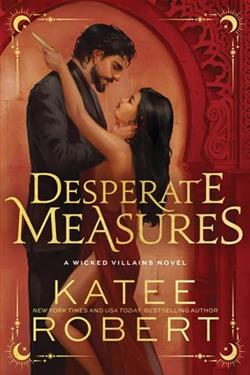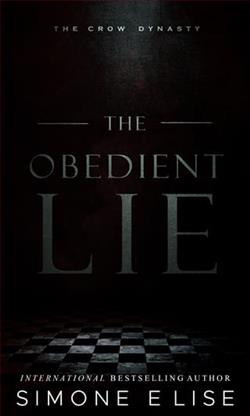Page 97 of Love, Remember Me
"Why did you not speak with someone about the queen's strange behavior, Mistress Tylney?" the Duke of Norfolk asked her.
Katherine Tylney looked at Duke Thomas as if he were mad. "Who was I to go to, my lord? The king perhaps? And what was I to say, sir? That his wife's behavior was odd, and secretive? I am a simple chamberer in the queen's household. I am a servant, not gentry. I had not the right to criticize the queen, and had I done so, neither the king, nor even you, my lord, would have believed me," she said.
"Thank you, Mistress Tylney, for your cooperation," Suffolk answered. "You are now dismissed, but we may ask to speak with you again."
She curtsied to the Privy Council and was escorted from the hearing room back to her confinement.
"Well, gentlemen," Suffolk said, "what think you?"
"It would appear that the queen was engaged in some sort of nefarious conduct," the Earl of Southampton replied.
"Aye, but exactly what, and with whom?" Lord Russell wondered.
"I do not think there is any doubt as to what she was doing," Lord Audley answered him. "The question is, with whom?"
"I may have the answer to that question, my lords," the archbishop told them. "I believe Thomas Culpeper is our miscreant, but I have not yet the proof I need. The queen seems very fond of him. He was on the summer progress for the entire four months. He would know her schedule as well as the king would know it, since he is a king's man."
"My God, Cranmer!" Duke Thomas said. "Culpeper was practically raised in the king's chambers. He came to court as a little lad to be a page. The king is deeply attached to him. It cannot be."
The archbishop shrugged. "My suspicions have been aroused."
"By whom?" demanded Norfolk.
"Your niece herself, I fear," Thomas Cranmer answered.
"I think," Suffolk said, "that we had best continue our questioning. We are next to speak with Margaret Morton, another chamberer." The duke signaled to the guardsman by the door. "Bring in Mistress Morton."
She entered, plump, and plainer than Katherine Tylney, if such a thing was possible. She was very excited to be testifying, and filled with self-importance. She curtsied to the Privy Council.
"How may I serve you, my lords?" she asked, without waiting to be invited to speak. She seemed not to realize her error.
"Mistress Tylney has testified to the queen's odd behavior on the progress, her nocturnal wanderings and such. Did you notice anything you wish to tell the council about?"
"Oh, aye," Mistress Morton said. "Her grace and the Rochford woman were up to something all right, 'tis certain. All those whispered conversations, the messages back and forth, and not one of them intelligible. Then there was the letters that Rochford was always getting from the queen and running off with, as well as those she brought back to her grace."
"You went out late with the queen, in secret, at Lincoln," the Duke of Suffolk encouraged the witness.
"Aye, and at York, and Pontefract too, my lords. We serving women are always used to running in and out of the queen's chamber, but at Pontefract her grace got into a shouting match with Mistress Lufflyn for coming into her bedchamber without knocking. She chased her right out, and forbade any of us to enter her bedchamber ever again without her express permission. Later that night the queen locked herself in the room with only Rochford in attendance. That in itself was very odd, my lords," she said with heavy meaning. "The door was not only locked, 'twere bolted from the inside to boot! Well, my lords, didn't the king himself come to visit his wife? He obviously expected to spend the night in her bed. There he was, no disrespect intended, sirs, in his dressing gown, his nightshirt, and his nightcap, and the door was barred to him." She looked about to see what effect her story was having, and obviously satisfied by what she saw, continued.
"Well, my lords, we banged upon the door, and Lady Rochford's voice finally asks us what we want. The king is here to see the queen, we told her. Then, for I was nearest to the door, I could hear a fierce scuffling going on inside, and Rochford saying she was having trouble with the lock, and the king getting more impatient by the minute. Finally, at long last the door is opened a crack, and Rochford's face pops out. The queen, she says, is suffering with a tremendous headache, and begs the king's leave to continue her rest alone that she might be well enough to join the hunt the next day. Of course, his grace acquiesces, being the kind gentleman that he is. God forgive me for saying it, my lords, but I thought to myself at the time, there's a man in there with her."
The room was very still. Here was the thing they sought, yet had feared, finally voiced aloud.
"Did your suspicions, Mistress Morton, perhaps give you an idea of who might have been with the queen?" Suffolk asked her.
"I would stake my life that 'twas young Tom Culpeper, my lords," she told them frankly. "It could be no one else."
"Not Dereham?"
"What, that bad-tempered, crude blowhard? Nay! 'Twas Tom Culpeper if it was anyone, my lords. I knew last spring, April, it was, that she was drawn to him. At Hatfield she stood in her window and cast loving looks upon him standing below. He too looked with love upon her, and blew kisses to her with his fingertips. Once, at Hatfield, she was alone with Master Culpeper for some six hours, locked in her privy chamber. When they emerged, they each looked like the cat who had swallowed the canary. You did not have to guess to know what they had both been about," Margaret Morton concluded archly.
"And you told no one?" Norfolk growled, as he had with Tylney.
"I am a chamberer," Margaret Morton said. " 'Twas not my place to inform upon my mistress. If I did such a thing, I should never be able to get a good place in a decent household again."
"Thank you, Mistress Morton," Suffolk said smoothly. "You are dismissed. Your testimony has been most helpful to us."
She bustled from the room under guard, and when the door closed behind her, the Duke of Suffolk said, "That was most enlightening, my lords, was it not? It seems, my lord archbishop, that your hunch is about to pay off quite handsomely."















